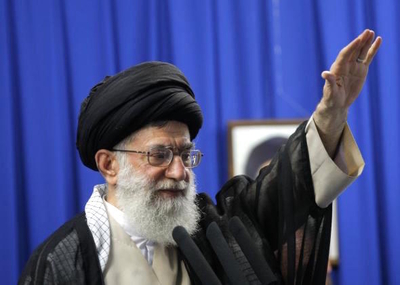Bombing ISIS: Is Iran America’s newest ally?
Abdullah Hamidaddin/Al Arabiya
Saturday, 6 December 2014
The U.S. this week said that Iran bombed ISIS. The Iranians at first denied the news, but then confirmed it – a few days later. The Iranian denial was expected. More than two months ago, Iran’s Supreme Leader Ali Khamenei released a series of tweets against the U.S.-led coalition against ISIS. The message he conveyed is not new: Iran will not be part of a coalition led by a country – the U.S. – which is a leader in supporting terrorism. So when two-and-half-months later the Americans point to the possibility of an Iranian strike against ISIS, the only natural thing is to deny it. The denial used rhetoric similar to that used by Khamenei: It is out of the question for Iran to cooperate with the U.S., the U.S. should have no place in the futures of Iraq and Syria.
Even before it was confirmed, it would make sense to believe that the bombing actually happened. A few weeks ago news came out about a secret letter by President Obama to Khamenei. The two main points of the letter were on nuclear negotiations and cooperating in fighting terrorism and ISIS. The recent nuclear negotiations did not achieve their objectives. So perhaps the Iranians calculated that their support of U.S. efforts against ISIS would give them leverage in the next round of negotiations. Moreover, the Saudis and the Russians agreed in their latest discussions that the Geneva 1 framework should be the basis of any solution to the Syrian war. It would not be farfetched to say that this agreement diminished the value of ISIS for both Assad and Syria.
Military issues
There is also precedence for U.S.-Iran support in military issues. The Iran-Contra affair (1985-1986) came at a time when the relationship between both countries was much worse than it is today. Yet Iran was willing to support America’s war against the Sandinista government in Nicaragua in return for much needed American weapons. Not only that, Iran was willing to have those weapons delivered through Israel! A more recent but no less significant case of U.S.-Iran military coordination came in 2001 when Iran supported the U.S. coalition against the Taliban.
“I’ve personally been very supportive of U.S. – Iranian rapprochement as it will improve the security conditions in the region”
Both the U.S. and Iran do not like such news to come out. The most apparent reason is embarrassment and had it not been for footage showing what seemed to be Iranian planes the matter could have been kept under the rug. Iran likes to present itself as an anti-imperialist, Islamic and revolutionary state. But it seems that behind all the idealistic Iranian rhetoric is a shrewd and savage realpolitik. U.S. Secretary of State John Kerry had said last September that coordination with Iran “would not be right for any number of reasons.”
A more probable reason in my view for the U.S. discontent from the revelation of Iran bombing ISIS would be the signals it would send to America’s allies in the region. They believe the U.S. is appeasing Iran, while Iran is working hard and fast to acquire the nuclear weapon. The alleged Iranian bombing could not have happened without some form of direct or indirect coordination with the U.S.; and this propels the concerns of America’s allies to a new level. It was one thing to see the U.S. going soft with Iran’s nuclear ambitions; something else all-together to see some form of military coordination with Iran.
I’ve personally been very supportive of U.S. – Iranian rapprochement as it will improve the security conditions in the region; something which is much needed after more than three and a half decades of disorder. But for it to work America’s allies need to be in the picture. They need to be part of the solution. This is a regional matter not a bilateral one; this is a matter which will redefine the security regime of the regime and all the leading countries in this region should be writing down that new security regime. If that cannot be achieved, I think America’s allies deserve the courtesy of not having to hear the extent of U.S.-Iranian cooperation via satellite channels.






















